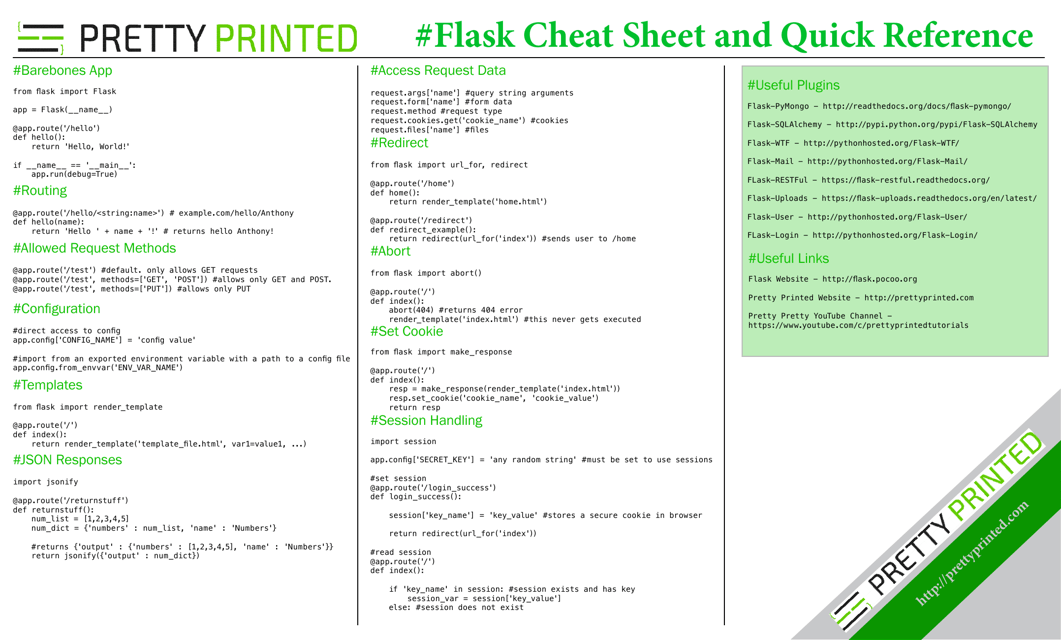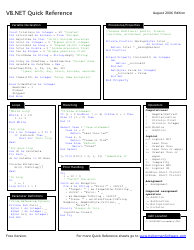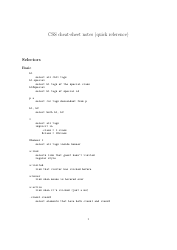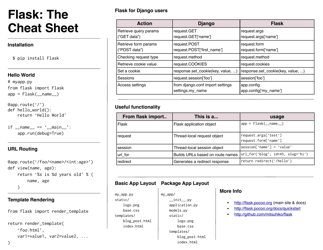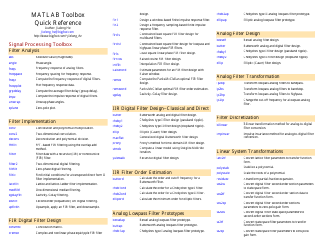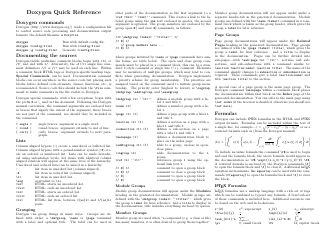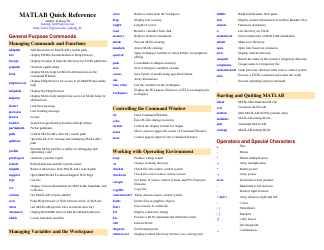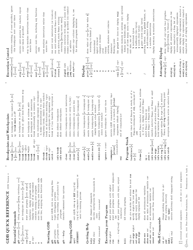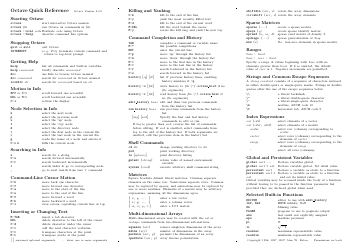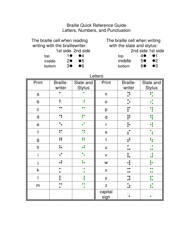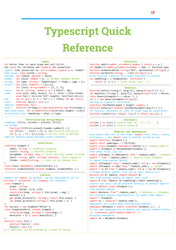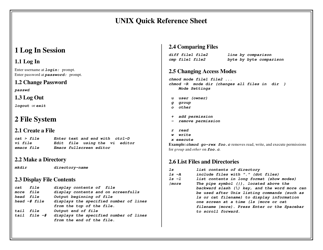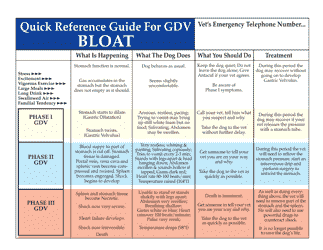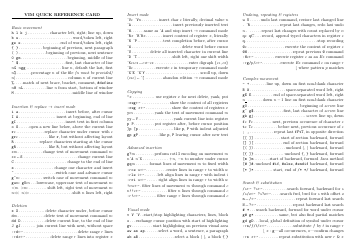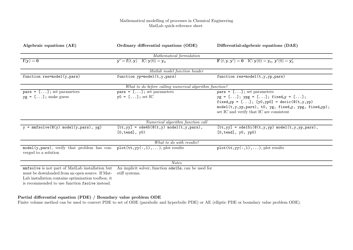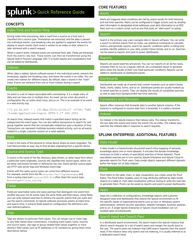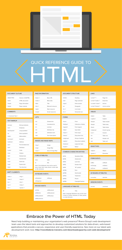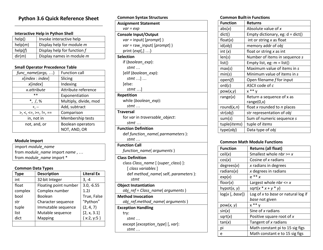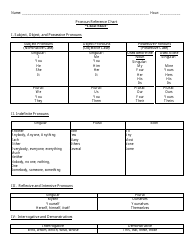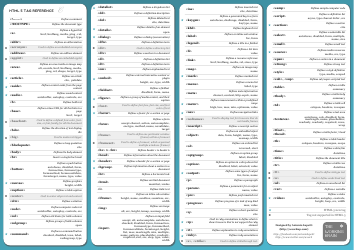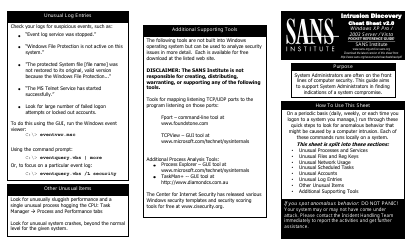Flask Cheat Sheet and Quick Reference
A Flask Cheat Sheet and Quick Reference is a document that provides a condensed and easy-to-access overview of the Flask web framework. It is useful for developers who are familiar with Flask and need a quick reference guide for its syntax, functions, and features when building web applications.
FAQ
Q: What is Flask?
A: Flask is a micro web framework written in Python.
Q: What are the features of Flask?
A: Flask is lightweight, easy to use, and flexible. It provides templating support, request dispatching, and a built-in development server.
Q: How do I install Flask?
A: You can install Flask using pip by running 'pip install Flask' in your terminal or command prompt.
Q: How do I create a Flask application?
A: To create a Flask application, you can start by creating a new Python file and importing the Flask module.
Q: What is a route in Flask?
A: A route in Flask is a URL pattern that maps to a specific function. It allows you to define different endpoints for your application.
Q: How do I define a route in Flask?
A: To define a route in Flask, you can use the '@app.route' decorator followed by the URL pattern.
Q: How do I run a Flask application?
A: You can run a Flask application by calling the 'run' method on the Flask object in your Python file.
Q: Can I use Flask for building RESTful APIs?
A: Yes, Flask is commonly used for building RESTful APIs due to its simplicity and flexibility.
Q: Is Flask suitable for large-scale applications?
A: While Flask is a great choice for small to medium-sized applications, it may not be the best option for large-scale applications due to its lightweight nature.
Q: Are there any alternatives to Flask?
A: Yes, there are other web frameworks available in Python like Django and Pyramid that offer more features and scalability compared to Flask.
